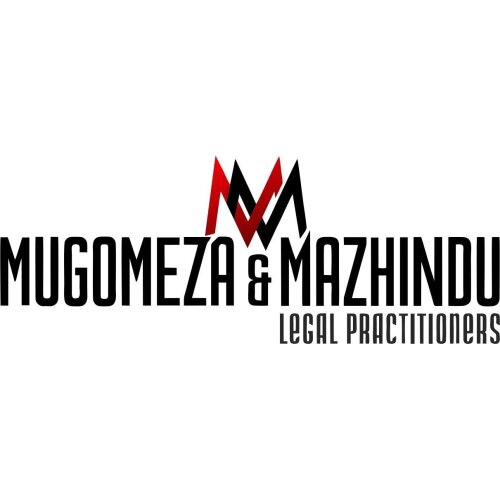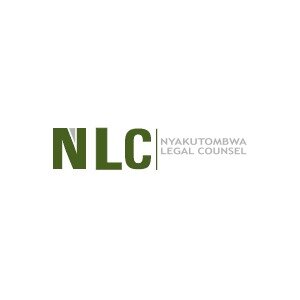Best Renewable & Alternative Energy Lawyers in Zimbabwe
Share your needs with us, get contacted by law firms.
Free. Takes 2 min.
Or refine your search by selecting a city:
List of the best lawyers in Zimbabwe
About Renewable & Alternative Energy Law in Zimbabwe
Renewable and alternative energy law in Zimbabwe covers legal frameworks, policies, and regulations that govern the development, production, distribution, and use of clean and sustainable energy sources. These sources include solar, wind, hydro, biomass, and geothermal power. With its vast natural resources and high solar irradiation, Zimbabwe has been actively encouraging the adoption of renewable energy to address power shortages, reduce reliance on fossil fuels, and contribute to environmental protection. The government, through policies such as the National Renewable Energy Policy (NREP) of 2019 and other legislative measures, has created a framework to attract investments and support local initiatives in renewable and alternative energy.
Why You May Need a Lawyer
Seeking legal advice is essential when dealing with renewable and alternative energy issues in Zimbabwe. You may require a lawyer in various situations, including:
- Navigating the licensing and permitting process for renewable energy projects - Drafting or reviewing Power Purchase Agreements (PPAs) or investment contracts - Understanding and complying with complex regulatory and compliance requirements - Handling disputes regarding land acquisition, community engagement, or compensation - Advising on intellectual property rights for technology and innovations in energy - Assisting with joint ventures, mergers, or acquisitions in the renewable sector - Ensuring environmental standards and sustainability obligations are met - Accessing government incentives and understanding tax implications - Advising international investors on local content rules and currency regulations - Supporting community-based or small-scale energy generation schemes
Local Laws Overview
Zimbabwe has implemented several laws and policies specifically targeting the renewable and alternative energy sector. The most notable are:
- National Renewable Energy Policy (NREP): Sets targets for renewable energy adoption and provides guidelines for implementation and investment. - Electricity Act (Chapter 13:19): Governs the generation, transmission, and distribution of electricity, including licensing and obligations of operators. - Zimbabwe Energy Regulatory Authority Act (Chapter 13:23): Establishes ZERA as the primary regulator responsible for licensing, standards, and oversight in the energy sector. - Environmental Management Act (Chapter 20:27): Sets environmental requirements, including Environmental Impact Assessments (EIA) for energy projects. - Investment laws: Govern foreign and local investment in the energy sector, outlining incentives and protections. - Customs and Excise (General) Regulations: Allow certain exemptions and incentives for renewable energy equipment imports.
Other policies, like the National Energy Policy (NEP), also influence renewable activity. These laws work together to provide structure and incentives for the development of clean energy in Zimbabwe.
Frequently Asked Questions
What are the main types of renewable energy used in Zimbabwe?
The main types are solar, mini-hydro, biogas, and to a lesser extent, wind and geothermal energy.
Do I need a license to set up a renewable energy project?
Yes, any person or company generating electricity for commercial purposes must obtain a license from the Zimbabwe Energy Regulatory Authority (ZERA).
What incentives are available for renewable energy investors?
Investors can benefit from duty-free import of certain renewable energy equipment, tax incentives, and support under the National Renewable Energy Policy.
Are there any environmental requirements for renewable energy projects?
Yes, most projects require an Environmental Impact Assessment (EIA) and must comply with environmental standards set by the Environmental Management Agency (EMA).
Can foreign investors participate in Zimbabwe's renewable energy sector?
Yes, foreign investors are allowed and encouraged. They must comply with local laws, investment regulations, and currency repatriation rules.
How do Power Purchase Agreements (PPAs) work in Zimbabwe?
PPAs are contracts between energy producers and the Zimbabwe Electricity Transmission and Distribution Company (ZETDC) to sell electricity at agreed terms and prices.
What governmental body regulates renewable energy?
The Zimbabwe Energy Regulatory Authority (ZERA) is the primary body responsible for licensing and oversight in the energy sector.
Are there requirements for social or community engagement?
Yes, community consultation and benefit-sharing are encouraged, especially for projects affecting local communities or on communal land.
Is small-scale or off-grid renewable energy regulated?
While personal or small-scale projects for household use are less regulated, commercial off-grid or mini-grid projects still require licenses and must adhere to standards.
Where can I get more information or assistance for my project?
You can consult ZERA, government ministries, legal professionals, or renewable energy associations for tailored guidance.
Additional Resources
If you need further information or assistance, consider these resources and organizations:
- Zimbabwe Energy Regulatory Authority (ZERA) - Ministry of Energy and Power Development - Environmental Management Agency (EMA) - Zimbabwe Investment and Development Agency (ZIDA) - Zimbabwe Electricity Supply Authority (ZESA) and Zimbabwe Electricity Transmission and Distribution Company (ZETDC) - Renewable Energy Association of Zimbabwe (REAZ) - Local law firms with expertise in energy law - Non-governmental organizations supporting renewable energy initiatives
Next Steps
If you need legal assistance in the renewable and alternative energy sector in Zimbabwe, follow these steps:
1. Identify the specific nature of your issue or project, such as licensing, investment, environmental compliance, or contract negotiation. 2. Gather all relevant documents, permits, and correspondence for your matter. 3. Contact a legal practitioner or law firm with expertise in energy, environmental, or commercial law. 4. Consult the relevant regulatory bodies for guidance and requirements. 5. Discuss your situation with your lawyer to understand your obligations, risks, and opportunities. 6. Follow legal and regulatory procedures promptly to avoid delays or penalties. 7. Stay updated with any changes in Zimbabwe’s energy policies and laws.
By seeking appropriate legal advice early, you can ensure your renewable or alternative energy project complies with Zimbabwean laws and is set up for success.
Lawzana helps you find the best lawyers and law firms in Zimbabwe through a curated and pre-screened list of qualified legal professionals. Our platform offers rankings and detailed profiles of attorneys and law firms, allowing you to compare based on practice areas, including Renewable & Alternative Energy, experience, and client feedback.
Each profile includes a description of the firm's areas of practice, client reviews, team members and partners, year of establishment, spoken languages, office locations, contact information, social media presence, and any published articles or resources. Most firms on our platform speak English and are experienced in both local and international legal matters.
Get a quote from top-rated law firms in Zimbabwe — quickly, securely, and without unnecessary hassle.
Disclaimer:
The information provided on this page is for general informational purposes only and does not constitute legal advice. While we strive to ensure the accuracy and relevance of the content, legal information may change over time, and interpretations of the law can vary. You should always consult with a qualified legal professional for advice specific to your situation.
We disclaim all liability for actions taken or not taken based on the content of this page. If you believe any information is incorrect or outdated, please contact us, and we will review and update it where appropriate.
Browse renewable & alternative energy law firms by city in Zimbabwe
Refine your search by selecting a city.
















